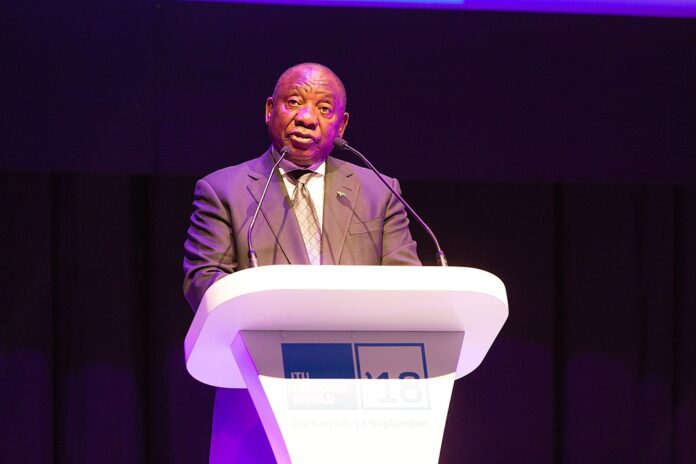Following significant losses in the 2024 elections, the ANC’s NEC emphasizes the need for renewal and addressing factionalism and ethical issues within the party
The African National Congress (ANC) has undertaken a critical assessment of its performance in the 2024 general elections, identifying internal issues such as organizational degeneration, factionalism, and ethical erosion as key factors contributing to the party’s decline to 40% of the vote. During the ANC National Executive Committee (NEC) meeting at the Birchwood Hotel and OR Tambo Conference Centre in Boksburg, Gauteng, ANC head of political education David Makhura stressed the urgency for the party to renew itself, stating that it must “adapt or die.”
Makhura emphasized that the ANC has disappointed its support base and acknowledged the ideological and political differences that have weakened the organization. He reiterated that the renewal process is crucial for the party’s survival and that various resolutions on renewal will now be implemented.
Embed from Getty ImagesSenior ANC member Fébé Potgieter highlighted factionalism and the slow pace of transformation as additional factors behind the party’s electoral decline. She noted that political fragmentation, economic challenges, and resistance to change have further exacerbated the situation.
The ANC’s analysis also indicated a shift in voter behaviour along racial lines and pointed out the consistent support from women, who accounted for 55.25% of registered voters in the 2024 elections. Potgieter called for addressing the issues faced by women, who have been a steadfast constituency for the party.
Despite the setbacks, Potgieter expressed optimism about the ANC’s ability to regain support, drawing parallels to the party’s near collapse in the 1930s. She emphasized that the leadership must adapt to the electorate’s message to revive the party’s fortunes.
The NEC meeting, which included a three-day assessment of the party’s election performance, revealed a drop of 17 percentage points nationally, resulting in the formation of a government of national unity with other parties such as the DA, IFP, and PA. The ANC lost majorities in KwaZulu-Natal (KZN), Northern Cape, and Gauteng but maintained its hold in Free State, Eastern Cape, Limpopo, Mpumalanga, and North West.
To address governance and internal issues, the ANC plans to hold a special NEC meeting to strengthen the powers of its integrity commission, chaired by Frank Chikane. The commission, established in 2013 to protect the party’s image, has faced criticism for its limited authority, with final disciplinary decisions resting with the NEC.
Following the NEC meeting, the ANC’s lekgotla began, focusing on elaborating a policy program for the party in government. Key objectives include implementing a jobs plan, building an inclusive economy, addressing the high cost of living, improving local government services, and defending South Africa’s democracy.
President Cyril Ramaphosa, speaking at the lekgotla, urged the party to view the electoral decline as a call to action. He emphasized the need for the ANC to improve and adapt to meet the people’s demands, highlighting the importance of building a strong, inclusive economy that offers opportunities for all South Africans.
Analysis:
Political: The ANC’s significant losses in the 2024 elections highlight the critical challenges facing the party, including internal division and ethical lapses. The emphasis on renewal and adaptation reflects a strategic shift aimed at regaining voter trust and stabilizing the party’s political standing. The formation of a government of national unity and the involvement of other parties indicate a pragmatic approach to governance in the face of declining support.
Social: Socially, the ANC’s analysis points to a fractured electorate and the importance of addressing the needs of its diverse support base, particularly women. The party’s focus on transformation and tackling economic inequalities is crucial for maintaining social cohesion and addressing the grievances of marginalized communities. Efforts to renew the party’s image and integrity are also vital in restoring public confidence.
Economic: Economically, the ANC’s commitment to addressing the high cost of living and building an inclusive economy is central to its renewal strategy. By focusing on job creation and local government services, the party aims to directly impact the daily lives of citizens and address the economic disparities that have fueled discontent. Ensuring effective implementation of these policies will be key to reversing the party’s fortunes.
